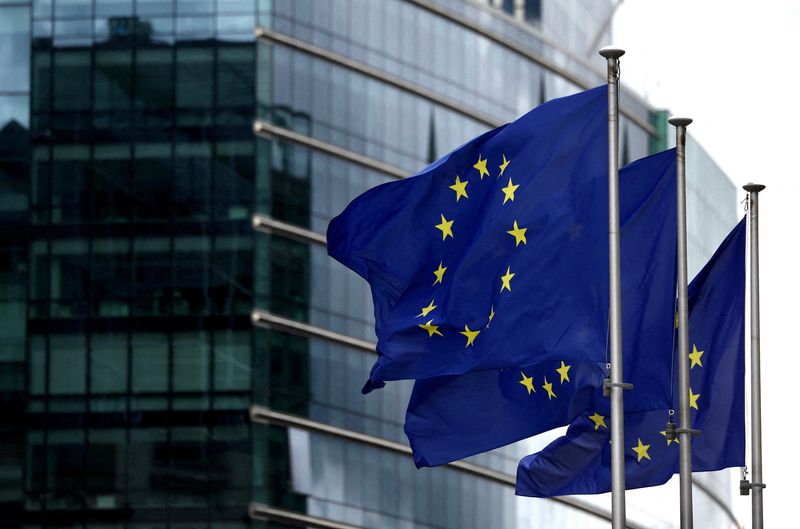By David Stanway
SINGAPORE (Reuters) -A European Union plan to impose tariffs on high-carbon imports could hurt developing countries in Asia but is unlikely to lead to big reductions in greenhouse gas emissions, the Asian Development Bank (ADB) said in a report published on Monday.
The Carbon Border Adjustment Mechanism (CBAM) was introduced to address concerns that the outsourcing of manufacturing had put large parts of the EU's supply chain beyond the reach of its emissions trading scheme (ETS), a situation described as "carbon leakage".
It was designed to level the playing field and make foreign suppliers pay the same carbon price as domestic ones, even if they are not subject to an ETS or carbon tax at home.
ADB said CBAM was expected to cut Asian exports to the EU, particularly from western and southwestern Asia, with steel from India also likely to take a hit.
But any small reduction in emissions would quickly be offset by the continuing increase in carbon-intensive production throughout Asia, and mechanisms to share emission reduction technology would be more effective, it said.
"It's actually a relatively limited policy at the moment," said Neil Foster-McGregor, ADB's senior economist. "It only imports into the EU (and) only covers six sectors.
"The way the scale of production is increasing, even if we do this carbon pricing more broadly across the globe, you're still going to see rising emissions unless we see a fundamental change in production techniques," he added.
CBAM could raise around 14 billion euros ($15.2 billion) in revenue by 2030, and the proceeds should be used to provide climate finance for developing countries to decarbonise manufacturing, Foster-McGregor said.
One of the aims of CBAM was to incentivise non-EU economies to impose stricter climate policies of their own: if exporting nations can demonstrate that a carbon price has already been paid, the CBAM levy will be reduced.
India has already discussed the possibility of imposing export taxes on CBAM-covered products sold to Europe, and China is expanding its ETS to cover exporting sectors like steel.
Both countries have been critical of CBAM, with China warning Europe not to use climate as an excuse to engage in trade protectionism.
While CBAM serves as a tariff on foreign producers, it will also raise the cost of raw materials such as steel and fertiliser for downstream EU manufacturers, and could even give them an incentive to relocate more production capacity overseas, including Asia, the ADB report warned.

"While there is a partial offsetting of the carbon leakage in the upstream, there could be new carbon leakage downstream in the EU ... They are shooting themselves in the foot," said Jong Woo Kang, another senior ADB economist, speaking at a briefing on Monday.
($1 = 0.9244 euros)